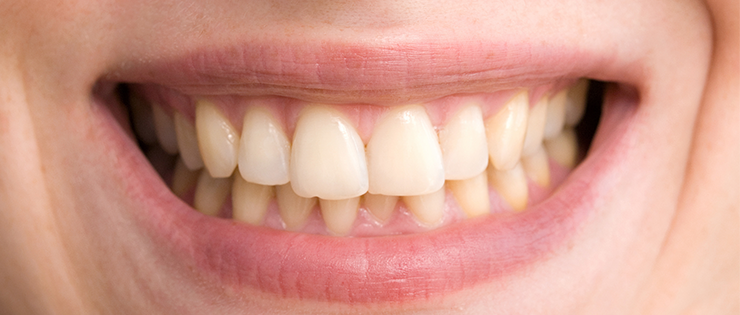
Everybody wants a bright, white smile, and there's a few different ways out there to whiten your teeth. But it could be that your daily habits are staining your teeth more than you think. There's obvious things which will stain your teeth brown or yellow, but also some habits that you may not have realised are dulling your pearly whites.
Smoking
Quitting smoking, or never starting, is one of the best thing you can do for your mouth. Not only does smoking increase your risk of oral cancer, and periodontitis (gum disease), but it also deposits a brown stain on the surface of your teeth. Some of this can be cleaned off by a dental professional, but there may be some staining deep in the grooves, pits, and cracks of your teeth that's difficult to remove. Vaping is unlikely to stain your teeth like smoking does, but unfortunately all the other negative effects of nicotine still apply.
Chewing tobacco and betel nut
Chewing on tobacco puts even more brown staining your teeth than smoking, particularly when it's held in your mouth for extended periods of time. Tobacco directly on the soft tissues of your mouth is an even bigger cancer risk than smoking, so it's fortunate to not be a common practice in Australia. Chewing on betel nut has a similar effect on the mouth to chewing tobacco, and is more popular in South East Asia and the Asia Pacific than it is in Australia. Betel nut creates a deep red/brown stain on the teeth and gums.
Coffee and tea
Probably the most socially acceptable drug use in Australia is caffeine, and both tea and coffee can deposit staining on your teeth. Unlike tobacco and betel nut, tea and coffee are far safer to consume in moderation. You can minimise the staining from tea and coffee by drinking it with milk, and rinsing out with plain water immediately after your cup of morning joe. Drinking through a straw can keep the staining away from your front teeth, but be warned that it's easy to burn yourself this way!
Red wine
Red wine , but not white wine, will create a blueish tinge to your teeth as you are drinking it. You can also expect brown staining to be deposited over a longer period of consumption if you indulge regularly.
Poor Oral Hygiene
Brushing and flossing every day helps to remove plaque and staining from throughout the day. If plaque is not removed it hardens into calculus, which is extremely porous and will take on staining from other sources much quicker than clean enamel. The best way to avoid discoloured teeth is easy, keep them clean!
Acid Erosion
Acid that contacts your teeth from either food/drink, or from acid reflux/vomiting, can wear away enamel over time. Eroded enamel gets thinner and thinner, so will start to show through the naturally yellow dentine layer underneath. Avoiding unnecessary acid exposure will mean your teeth appear whiter than eroded teeth.
Grinding
Long term bruxism can potentially affect the colour your teeth. Many people have a habit of clenching or grinding their teeth, particularly in their sleep. This habit is called bruxism, and can cause wear and chipping of the teeth as well as tiny hairline cracks in the enamel. These cracks will be prone to collecting staining more than an intact enamel surface.
Chlorhexidine
This is the antibacterial agent found in some mouthwashes. Chlorhexidine is fantastic at killing the unwanted germs in your mouth, but should be used for short periods of time only. It can be helpful if recommended by your dentist to treat an infection, but probably isn't necessary on a daily basis. Regular, prolonged use of chlorhexidine can leave a brown residue on your teeth. It can be removed by your dental professional by performing a scale and clean, so don't sweat it if your dentist recommends using a chlorhexidine product for your specific needs.
For more detail about types of dental staining, see my article on Question for Dr Emma - "Teeth Whitening".